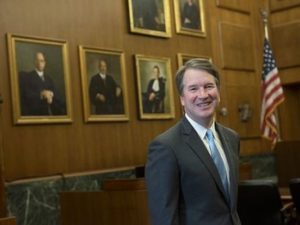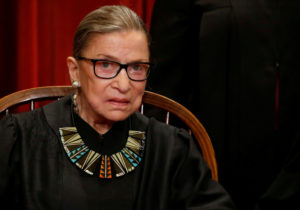An amazing thing occurred today that compels me to say something positive about Donald John Trump.
The president of the United States sounded reasonable, rational, measured and downright sensible in his response to a planned hearing involving a woman who has accused Supreme Court nominee Brett Kavanaugh of sexually assaulting her when they were both teenagers.
There was none of the usual crap that flies out of Trump’s mouth when women accuse powerful men of sexual misbehavior.
The president instead said the accuser, Christine Ford, needs to be heard. Yes, he complained that the accusation became known so late in the Kavanaugh confirmation process. But again, he refrained from the usual bellicosity one usually hears from the president.
Trump has been known to dismiss female accusers. There were those who have accused him of various acts of sexual misbehavior; he called the women who accused former Alabama judge Roy Moore of raping them “liars.”
So, you see, to hear the president speak in such measured tones today makes High Plains Blogger want to say something positive about the tone of voice he used.
Let’s hope there’s more measured tones in store.




